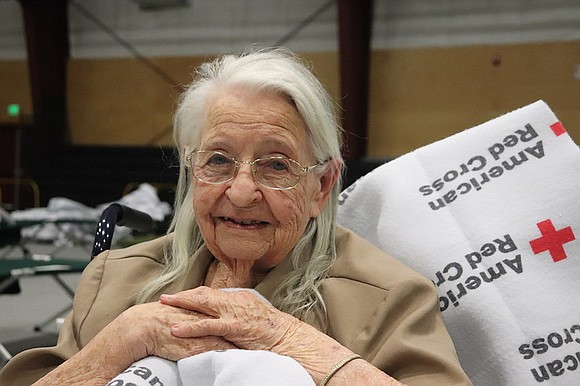Red Cross Emergency Preparedness for Older Adults
Style Magazine Newswire | 9/9/2022, 11:45 a.m.
A disaster or emergency that can directly affect your daily life can happen at any time, sometimes without warning. Thankfully, there are things you can do to be prepared, respond safely, and help speed your recovery. As we celebrate National Grandparents Day remember that these tips from the Red Cross can help you know what to do before, during and after a disaster or emergency.
How to Prepare Before a Disaster Occurs
Gather the information that will help you prepare for disasters and emergencies:
*Identify Likely Disasters: Know the types of disasters that could happen in your community.
*Learn about Community Response Plans: Find out about local plans for emergency alerts, evacuation and shelter resources.
*Sign up for alerts and warnings to receive information during an emergency.
*Get Trained: Learn first aid, CPR and the specific actions that can save your life for each type of disaster that is likely in your area.
*Make an emergency contact list and plan how you’ll reach your support group and important emergency contacts when communications may be disrupted.
Assess Your Needs
*Understand how your medical, physical and cognitive needs may affect your ability to respond to a disaster or emergency. For more information on kit considerations by ability, go to ready.gov/disability.
*Think About How You Would Respond: Consider needs you may have if the power went out, you had to stay home for two weeks or more, or if you had to evacuate your home or community.
*Talk about the help you may need and who could assist you.
*Property or Renter’s Insurance: Make sure you have a policy that meets your property and disaster coverage needs. To learn how to mitigate risks in your home by hazard, download this resource produced by Save the Children and the International Federation of Red Cross and Red Crescent Societies.
Build Your Support Network
*Identify Helpers: Include family, friends, neighbors, caregivers and care providers to build your network of people who may be able to assist you or that you can assist.
*Meet with your helpers to assess your needs and plan together.
*Plan how you’ll communicate with helpers.
Gather Your Supplies
*Get Basic Emergency Supplies: Use a checklist to prepare what you’ll need in your home, car or when you evacuate.
*Manage Medical and Personal Needs: Keep at least 30 days of medications and extra assistive items such as a cane or eyeglasses. Plan for your food needs if you follow a special diet.
*Get batteries to back-up power dependent devices.
*Keep an Up-to-Date List of Medical Information: conditions, allergies, medications, prescription records, doctors and insurance cards.
Follow these steps to help your life return to normal:
*Return Home Safely: Wait until authorities say it’s safe to return.
*Work With Trusted Sources: The American Red Cross, FEMA, your local government and your support network can help. Beware of scams.
*Manage Property Damage: Document any property damage for insurance and work with others to remove debris and clean safely.
About the American Red Cross:
The American Red Cross shelters, feeds and provides emotional support to victims of disasters; supplies about 40 percent of the nation's blood; teaches skills that save lives; provides international humanitarian aid; and supports military members and their families. The Red Cross is a not-for-profit organization that depends on volunteers and the generosity of the American public to perform its mission. For more information, please visit redcross.org or cruzrojaamericana.org, or visit us on Twitter at @RedCrossTXGC, Facebook at RedCrossTXGC and Instagram at txgulfcoastredcross.




